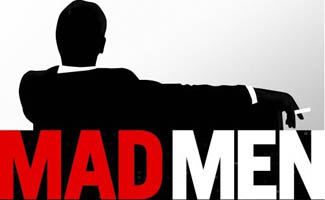 A recent episode of the popular AMC TV show Mad Men explores an interesting subject: plagiarism in advertising.
A recent episode of the popular AMC TV show Mad Men explores an interesting subject: plagiarism in advertising.
The show’s protagonist, Don Draper, is caught in a dilemma after he accidentally rips off another person’s marketing slogan and pitches it to a potential client. I don’t want to spoil the episode for those who haven’t seen it, but Draper ends up having to jump through hoops to remedy the problem for his firm.
Things have certainly changed in advertising since the 1960′s, but plagiarism remains an issue that could ruin the reputation of any business, organization or institution -- or individual.
Today, as online advertising and other new distribution venues continue to grow, plagiarism could potentially become an even larger problem than it was in decades past. I’d like to review a few segments of modern day advertising that are vulnerable to plagiarism.
Search Engine Optimization (SEO)
SEO is the process of optimizing a company’s web presence so that it is more visible via search engines (like Google). Many ad agencies do SEO work as part of their effort to bolster a client’s web presence.
There are quite a few methods of achieving optimization, however, publishing fresh content related to a company’s service sector is a favored technique. Keyword specific content can live on a company’s website or on external distribution venues – either one is dangerous grounds for plagiarism. If SEO content is duplicated, it has the potential to lose its value on search engines as well as in relation to a company’s bottom line.
Press Releases
A press release has always been a great way for a company to advertise a new product or to stay visible in a competitive sector. There are a handful of modern press release services (such as PRWeb) that offer a company the ability to distribute a release to a wide variety of online publishers.
This provides a great, low cost tool to bolster a company’s online presence. However, a press release can also be susceptible to plagiarism. Smaller, ‘bottom feeder’ sites often make the practice of copying press releases for the content value while omitting a company’s name.
Social Media
Social Media is fast becoming a must-have tool for any reputable advertising agency. Sites like Twitter and Facebook are a great way for a company, brand or individual to interact with a fan base and raise awareness for a product or service. As far as plagiarism goes, this is still a burgeoning field and the ‘rules’ of the playing field aren’t yet fully determined.
For example, it is common practice for Twitter users to ‘re tweet’ a post – which in a sense provides attribution for the content by acknowledging the original creator. However, how acceptable is it if someone duplicates a tweet without the token ‘RT’ include?
As social media and other online distribution venues becomes more prominent in the world of advertising, plagiarism is sure to become more of an issue. Although new forms of online content are still evolving, there are still fairly cut & dry cases of plagiarism in advertising that can hurt an agency.
An ad agency works very much like a publisher – they create and publish original content. The value of the content is directly tied to its unique message.
If this unique message is duplicated (without a link or bridge back to the original company), its value is diminished.
Related
Topics: Social Media